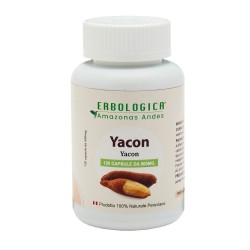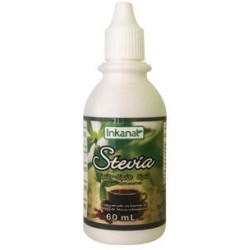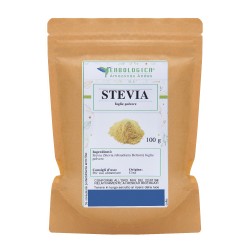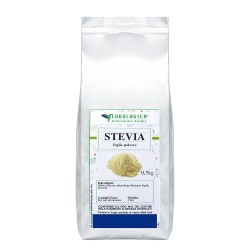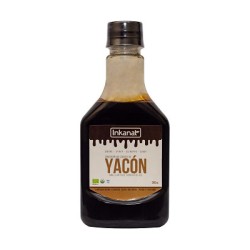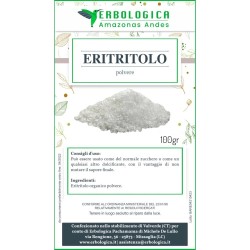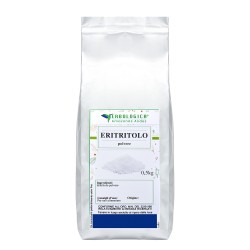
Dolcificanti naturali: alternative allo zucchero per un gusto più leggero
Un aiuto naturale per dolcificare ogni giorno con più equilibrio, senza rinunciare al sapore che piace.
Ridurre lo zucchero raffinato è una scelta utile per il benessere quotidiano, ma farlo senza perdere il piacere del gusto può sembrare difficile.
I dolcificanti naturali permettono di addolcire bevande e ricette con leggerezza, offrendo un’alternativa più armoniosa allo zucchero comune.
Perché cercare alternative naturali allo zucchero?
Lo zucchero raffinato tende a creare picchi glicemici e apporta calorie prive di nutrienti.
Le alternative naturali offrono un sapore piacevole mantenendo un approccio più equilibrato.
Alcune non influenzano la glicemia, altre contengono fibre o sostanze vegetali utili, rendendo più semplice una riduzione graduale dello zucchero nella quotidianità.
Qual è la differenza tra zucchero raffinato e dolcificanti naturali?
Lo zucchero bianco subisce processi che eliminano minerali e fibre, lasciando solo saccarosio.
I dolcificanti naturali, invece, derivano da foglie, radici, mieli o fermentazioni vegetali, mantenendo composti utili e una maggiore leggerezza dal punto di vista nutrizionale.
Che cos’è la stevia e quali benefici offre?
La stevia è un dolcificante naturale ottenuto dalle foglie della pianta Stevia rebaudiana.
È molto più dolce dello zucchero e non contiene calorie.
È ideale per chi cerca un gusto dolce senza modificare la glicemia.
Perfetta per tisane, caffè, bevande fredde e ricette leggere.
Da noi puoi trovare:
- Stevia liquida Inkanat, pratica da dosare per tisane e infusi
- Stevia foglie in polvere, disponibile in confezione da 100 g, adatta a preparazioni naturali
Quali sono i benefici dello sciroppo di yacon?
Lo sciroppo di yacon deriva dalla radice di Smallanthus sonchifolius, una pianta andina ricca di fruttoligosaccaridi.
È apprezzato per il suo gusto delicato e il basso impatto sulla glicemia.
Può favorire la flora intestinale grazie alle sue fibre naturali.
È ottimo per ricette dolci, yogurt o pancake.
Da noi puoi trovare:
- Sciroppo di Yacon, naturale e dal sapore morbido
- Yacon andino capsule, pratiche da inserire nella routine quotidiana
Che cos’è l’eritritolo e perché sceglierlo?
L’eritritolo è un dolcificante naturale ottenuto dalla fermentazione di zuccheri vegetali.
Ha gusto neutro, zero calorie e non influisce sulla glicemia.
Si comporta in modo simile allo zucchero nelle ricette da forno, rendendolo perfetto per torte, biscotti e dolci fatti in casa.
Da noi puoi trovare:
- Eritritolo in polvere, ideale per cucinare e dolcificare in modo leggero
Il miele può essere una buona alternativa?
Il miele è un dolcificante naturale ricco di enzimi e sostanze nutritive.
Il suo sapore morbido e aromatico lo rende perfetto per tisane, caffè, yogurt e impasti leggeri.
È ideale quando si cerca un gusto dolce più rotondo e naturale.
Da noi puoi trovare:
- Miele composto arnia, dal profumo intenso e perfetto per l’uso quotidiano
In Erbologica trovi dolcificanti naturali selezionati per facilitare una riduzione graduale dello zucchero, accompagnando il gusto con leggerezza.
Come usare i dolcificanti nella vita quotidiana?
Si possono aggiungere a tisane, caffè, bevande, creme, dolci da forno, yogurt, frullati o ricette casalinghe.
Alcuni sono perfetti per cotture, altri per bevande leggere.
L’importante è scegliere quello più adatto alle proprie abitudini.
Quali accorgimenti possono aiutare a ridurre lo zucchero?
Bere tisane dolcificate naturalmente, scegliere yogurt non zuccherati, preferire frutta fresca, usare dolcificanti più leggeri e bilanciare la dieta con alimenti ricchi di fibre.
Per informazioni utili sul rapporto tra zuccheri e alimentazione puoi consultare: ViverSano.net —"Come eliminare lo zucchero dalla dieta e sostituirlo con dolcificanti naturali (adatti anche ai diabetici)"
Domande frequenti
Quali dolcificanti naturali hanno basso impatto sulla glicemia?
Stevia, eritritolo e sciroppo di yacon
Si possono usare per cucinare?
Sì, eritritolo e yacon sono adatti anche alla cottura
Qual è il più pratico per le bevande?
La stevia liquida
Il miele è una buona alternativa allo zucchero?
Sì, se usato con moderazione all’interno di una routine equilibrata
Contenuto esclusivo per erbologica.it – aggiornato a gennaio 2025


